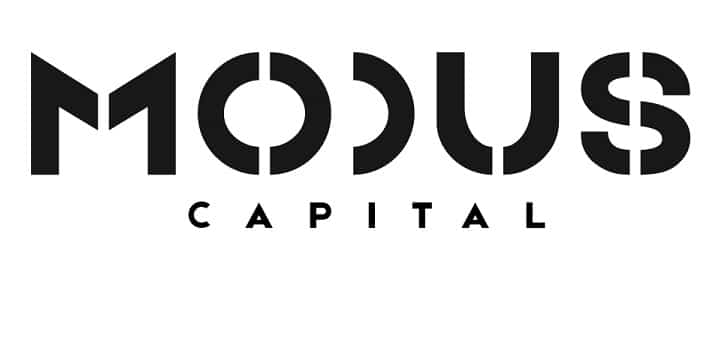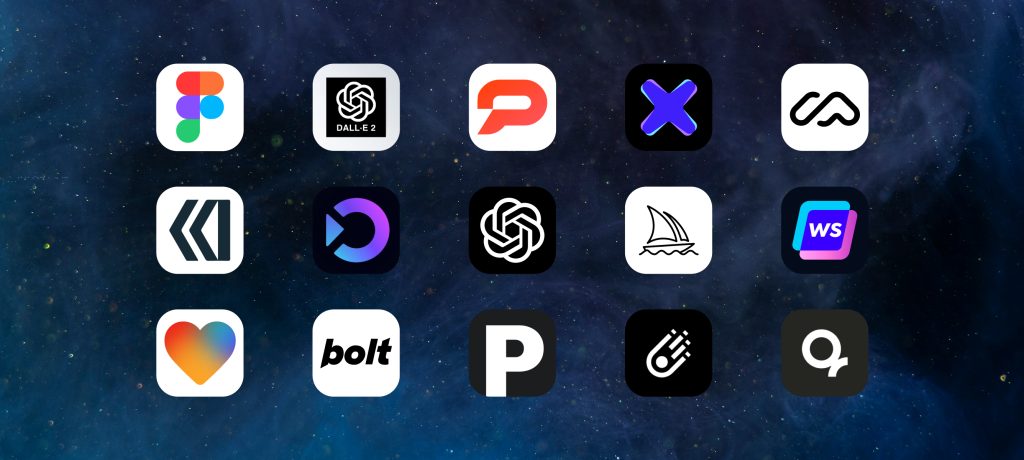Do you still think ChatGTP is in its infancy—or, is this more of a collective wishful thinking?
Everywhere we turn, there’s AI this, AI that.
The “early nascent days” of ChatGPT have morphed into an adolescent AI adult that seems to have all the answers—not beyond the year 2021, though!
While the generative AI sensation—that has swept the online world—may not be at a tipping point yet, we can’t discard its ubiquity.
ChatGPT, and the likes of generative AI systems, have permeated all niche domains—from content creation, marketing, product UX and user research to SEO and business strategy.
Startup entrepreneurs have been employing all the generative AI tools at their disposal to save time, improve efficiency, and make more educated business decisions by leveraging the AI’s natural language processing capabilities.
This article aims to explore the potential benefits and limitations of using ChatGPT for startup operations and venture building.
Leading by example, we’ve had a sitdown with our in-house heroes to get their two cents on how ChatGPT can help them streamline their day-to-day workflow and what caveats we should watch out for.
By reading this, you’ll learn if ChatGPT can be put to good use for the following startup operational functions:
Tech
Have you used ChatGPT? If so, how has your experience been?
I think ChatGPT is the beginning of a new era of how we interact with knowledge.
My experience with ChatGPT is outstanding. However, due to the nature of the technology, it is super sensitive to the nature of the topic and the way you phrase the inquiry.
How have you incorporated ChatGPT into your day-to-day workflow and what impact has it had on your processes?
ChatGPT was an effective performance booster for me and my team. Due to the rapid change in the technologies we use, we spend a decent time surfing the internet about the usage of libraries and tech stacks. ChatGPT significantly decreased the amount of time spent on research and optimization.
Sure, there is a two-sided effect of ChatGPT. It will increase the productivity of developers, however, due to this increased productivity, junior developers’ opportunities will decrease as we’ve found a new way to optimize existing resources.
Are there any caveats to consider when using ChatGPT—what should we watch out for?
You have to keep in mind that ChatGPT is a giant auto-complete machine, it doesn’t have skills nor understands the generated content. It might give you useful information or decrease research time, but the output needs to be reviewed and reiterated by experts in the space.
Product
Have you used ChatGPT? If so, how has your experience been?
ChatGPT is a great assistant to help the Product Manager enhance his day-to-day duties, starting with market research, customer support, competitor analysis, and sales and marketing.
It requires heavy micro-adjustments and iterations, and probably a few integrations here and there, but in the long term, it can save me time by streamlining repetitive tasks.
How have you incorporated ChatGPT into your day-to-day workflow and what impact has it had on your processes?
The job of a product manager involves a complex set of tasks that require a combination of technical, analytical, strategic, and interpersonal skills. While some aspects of a product manager’s job could be automated – it’s very unlikely that the job could be fully automated in the near future.
Are there any caveats to consider when using ChatGPT—what should we watch out for?
Definitely do not get used to relying on it 100%, and at all times. Learning to learn still remains one of the greatest ways to outsmart ChatGPT, and seems to be a meta-quality that can save one from AI disruption.
Research
Have you used ChatGPT? If so, how has your experience been?
I do use ChatGPT, and I see it as having a Google chatbot at my fingertips when in a hurry. Rather than sifting through numerous articles to locate the information I’m seeking, I can simply ask ChatGPT and receive a structured summary of the available information specific to what I’m trying to find out.
How have you incorporated ChatGPT into your day-to-day workflow and what impact has it had on your processes?
I use ChatGPT as a tool to guide brainstorming sessions and research approaches for small and fast-paced UX teams. However, it’s very important to not rely solely on the tool and preserve the importance of human judgment in finalizing research approaches. The unique nature of each research project requires a personalized approach that cannot be replaced by any AI tool. I strongly encourage the use of creative thinking and human judgment to constantly discover new ways to approach research.
Are there any caveats to consider when using ChatGPT—what should we watch out for?
- Through research, we try to uncover the pain points, needs, and motivations of our users. Often, we need to dig deeper to uncover the “aha!” insights that refine our value proposition, identify the real issues our users face, and expand our scope during the discovery phase. This kind of deep insight can only be gained through direct conversations with real users.
- It’s important to remember that the information provided by ChatGPT is based on the data it was fed, and may not always reflect the rapidly changing behaviors and preferences of real people for who we are building our products! Sometimes a problem we thought existed, that we found through secondary research might not be a problem anymore once we speak with the users.
- Relying solely on secondary data (I see a lot of founders getting excited about the personas, or data from ChatGPT that validates their value proposition, product, and so on) can leave you several steps behind in innovation, so it’s always crucial to speak directly to our users to stay up-to-date on the everchanging trends.
Design
Have you used ChatGPT? If so, how has your experience been?
ChatGPT, as great a tool as it is, I don’t foresee it taking anyone’s job in the near future. Like other AI tools and services (Adobe, Canvas, Microsoft, etc.), it can help enhance and simplify your workflow, generate ideas, and provide an excellent baseline to start from.
How have you incorporated ChatGPT into your day-to-day workflow and what impact has it had on your processes?
It was used to generate a series of questions about a sector I didn’t know much about. I took what was provided and tailored it to fit the voice and objective it was intended for.
Are there any caveats to consider when using ChatGPT—what should we watch out for?
The technology is quickly growing and being implemented into more and more daily tools and services. With great power comes great responsibility. It’s not perfect, still biased, and is only as good as its maker.
Strategy
Have you used ChatGPT? If so, how has your experience been?
Yes, I’ve used ChatGPT before. It is an extremely helpful tool to optimize work. It definitely came in handy in the past, however, there is a bit of a learning curve in understanding how to input prompts.
How have you incorporated ChatGPT into your day-to-day workflow and what impact has it had on your processes?
I’ve used it mainly for market research, valuation, and profitability exercises. While it is extremely helpful from a data collection standpoint, there is a lot of structuring and personalization that goes into the work that ChatGPT can’t replicate…yet.
Are there any caveats to consider when using ChatGPT—what should we watch out for?
Entrepreneurs should maximize the use of every tool available to them, and ChatGPT is definitely one of them. It allows you to get insights into various aspects of your startup, however, it is important to use ChatGPT as a supplementary tool and not as a replacement for real experts with real industry and operational expertise building a startup.
Marketing & SEO
Have you used ChatGPT? If so, how has your experience been?
Marketing: Yes, ChatGPT can assist marketing teams in streamlining workflow by taking care of repetitive duties such as responding to customer inquiries, conducting market research, and creating content. It enables us to devote our time to other valuable tasks such as developing strategies and analyzing data, ultimately resulting in more efficient campaigns.
SEO: ChatGPT is a junior SEO specialist who has a way with words and can execute on simple optimization frameworks and content writing tasks. From keyword research, technical SEO, and link building, ChatGPT can deliver—but more often than not, the data is skewed and requires further validation.
How have you incorporated ChatGPT into your day-to-day workflow and what impact has it had on your processes?
SEO: It can get the ball rolling, helping me out with initial seed keyword research. That said, it can take me more time to validate the keyword search volume than if I were to accomplish the task without ChatGPT’s help. The tool is more adept at proofreading and summarizing content—and can be adjusted by the tone and writing style of your preference.
Are there any caveats to consider when using ChatGPT—what should we watch out for?
Marketing: While ChatGPT can be a valuable asset to marketing teams, entrepreneurs should be cautious of relying solely on AI for customer engagement. It’s important to maintain a human touch and ensure that customers feel heard and understood. Additionally, it’s essential to train ChatGPT carefully to ensure it provides accurate and relevant responses to customers. Finally, entrepreneurs should be mindful of potential ethical concerns related to data privacy and AI bias.
SEO: All ChatGPT results should be carefully vetted and validated before pushing your content piece out into the world. Watch out for false information that can be dangerously erroneous when conducting market research for your geographic target market.
Mastering the skill of creating prompts for ChatGPT can be an invaluable asset over the next few years. Asking the right question will help you reap the right data from AI tools.
Related Read: ChatGPT for SEO: A Friend or Foe
Pitfalls of relying on ChatGPT for venture building
With such great power, comes great responsibility. You should know by now ChatGPT should not be left to its own devices, without human supervision. Letting AI take the wheel of your startup operations can cause more damage than good—no matter how articulate, resourceful, courteous, or convincing it may appear to be. The lack of citations, outdated data, and lackluster flair are some of ChatGPT’s limitations.
How to sanitize and fact-check ChatGPT output
If you’ve given ChatGPT a whirl, you must have noted its results lack citations or data-backed references. Don’t be fooled by ChatGPT’s palpable, self-righteous confidence—when it comes to data reporting, data mining, or market research, the output can be wide off the mark.
When in doubt, turn to ChatGPT’s nemesis—and our old flame—Google, to fact-check any information you find dubious. Check for citations and resources, and cross-reference AI data with Google’s results.
Google Fact Check Explorer is an underutilized tool of Google’s Fact Check suite that allows searchers to verify facts and distinguish fact from fiction. The tool works by extracting data about the claims and the ratings from independent fact-checkers.
ChatGPT alternatives
Luckily, with the explosion of generative AI systems, you can cherry-pick the best tool that suits your business needs. Let’s take a look at the following alternatives to ChatGPT.
Perplexity AI
Perplexity AI not only provides answers to queries and prompts in real time but also supports its output with links to citations and related topics.
What sets it apart from ChatGPT
This feature gives it an edge over ChatGPT. Perplexity is free to use and is available via web browser and the Apple App Store.
Gemini
Despite Bard’s embarrassing mishap at its first demo, Gemini, formally Bard, is capable of providing answers in real-time based on LaMDA (Language Model for Dialogue Applications).
You
Not to be confused with the Netflix psychological thriller, You is an AI search engine purposely built to provide users with an ad-free, customized search experience, while preserving their data and keeping it 100% private. This AI is all about you!
What sets it apart from ChatGPT
Under the hood, You has a lot more to offer beyond the AI question-and-answer search engine.
- You Code allows developers to search through sources and use AI to write code, faster.
- You Write assists writers and content creators in composing, editing, and proofreading text by adjusting the tone, style, and use case.
- You Image creates images through text prompts and instructions provided by you.
Koala
Koala leverages online scraped dialogue data, and question-answer datasets to respond to user inquiries with the help of existing big language models with real-time results.
Chatsonic
Chatsonic AI confers a wide range of functionalities and capabilities, including integration with Google Search, creating digital images, and responding to voice prompts–all powered by state-of-the-art Natural Language Processing and Adaptive Learning technology.
What sets it apart from ChatGPT
- All data provided by Chatsonic is factual content since it directly parses data from the Google search engine. That way you can rely on the recency of its data.
- Voice commands help produce faster results and write content in less time.
Wrapping up: Will AI significantly impact our bread and butter?
A few years ago, there was a lot of excitement about the potential of cryptocurrencies, but it seems to have quieted down recently. The AI buzz, too, will wear off at some point.
It’s important to note that there are still risks and uncertainties associated with using Chat GPT as a foundation for a business. Although it’s an impressive technology, it’s vital to be aware of its potential drawbacks.
AI will not replace venture building and the team of experts that are required to build, optimize, and add value to a startup.
Our experts who have ‘been there, done that’ are with our founders throughout every step of the startup lifecycle. They offer guidance and support backed up by real experience (both the wins and the failures) at every major stage that generative AI simply cannot replicate.
More Resources:
ChatGPT for SEO: A Friend or Foe
Ok, Google: How to Get my MENA Startup Ready for Voice Search?
Scaling SEO for Middle East Startups





